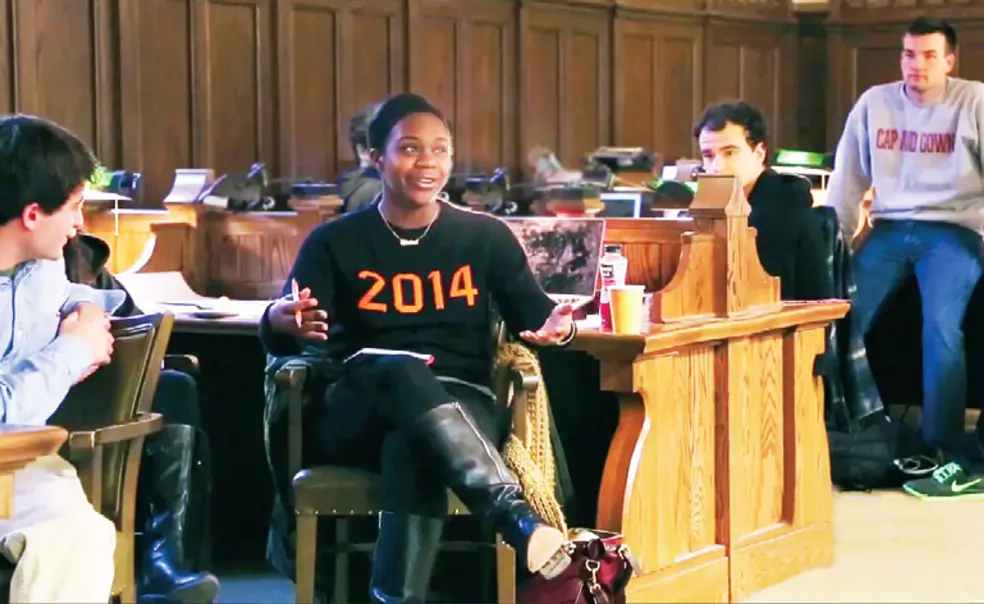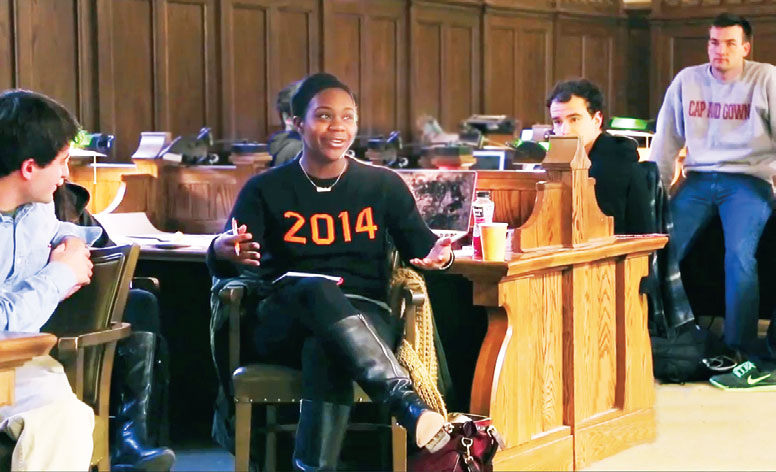Our Culture of Continuous Improvement
The senior thesis is iconic — a rite of passage that links today’s students to generations of Princetonians. Yet, like all great Princeton traditions, the thesis not only endures, it lives, grows, and changes. We recently took steps to enhance the thesis experience, spurred by practices of peer review that undergird the quality of American higher education.
In 2013-14, Princeton successfully completed our decennial reaccreditation effort through the Middle States Commission on Higher Education, an independent organization recognized by the federal government to assess institutions ranging from community colleges to research universities. Leading institutions sometimes regard accreditation as nothing more than a periodic burden — rather akin to undergoing an IRS audit. But, if approached constructively, reaccreditation offers an opportunity for peer review that reinforces a great university’s culture of continuous improvement.
Our multiyear Middle States compliance process required intensive work from many across campus to address questions about whether we are meeting our educational goals and how we assess student learning. The work was spearheaded by a steering committee of faculty and administrators led by Deputy Dean of the College Clayton Marsh and Professor Michael Jennings from the Department of German, with superb support from Associate Dean of the College Elizabeth Colagiuri.
A major element of the process was a thorough self-study of Princeton’s internationalization initiatives, which culminated in the steering committee issuing a report last February with numerous recommendations. These include piloting a new semester-long study-abroad program featuring clusters of courses taught by Princeton faculty from different departments, as well as expanding global internship opportunities. This report (available at www.princeton.edu/strategicplan/reports) will inform our campus-wide strategic planning process and help guide our thinking about the essential role of internationalization in Princeton’s educational mission.
The reaccreditation process also moved us to think deeply about the capstone of undergraduate education at the University. When asked how we assess student leaning, we pointed (as we have done for generations) to the senior thesis — independent research demonstrating the skills that students develop through working intimately with faculty in our distinctive model of liberal arts education. As debates rage throughout higher education about how to assess student achievement and progress, Princeton’s senior thesis is a model vehicle for both catalyzing and assessing students’ intellectual and personal growth.
The Middle States accreditors wanted to learn more about the thesis, particularly about how the writing and evaluation process is structured, how we convey standards and evaluative criteria to students, and how we ensure that feedback from students is taken into account by our 34 academic departments. In addressing those questions, we took the opportunity to ask ourselves how we could do better.
Dean Marsh and Director of Undergraduate Research Pascale Poussart collaborated with department chairs and representatives, as well as the Princeton Writing Program staff, to develop a new set of written guidelines for senior theses. Many departments had written resources to help students through the thesis process, but few had a comprehensive guide.
These excellent new guides, which rolled out last fall on the dean’s website and on departmental websites, have been extremely well received by students. While the guides convey individual departments’ perspectives and personalities, they share many elements, such as information on key dates and deadlines, campus resources, submission guidelines, grading standards, and the objectives, importance, and challenges of independent work.
“The essence of scholarly research is the creation of new knowledge through careful, systematic study,” the Department of Chemistry’s guide says. “Thus your thesis work is expected to make a recognizable and novel contribution to the body of knowledge in your field. Note that this definition transcends all fields, and defines the common element in Princeton theses on topics as diverse as religion and chemistry.”
The Department of Slavic Languages and Literatures’ guide advises students, “Writing a thesis — or a doctoral dissertation, or a book — is like life as a whole. There are ups and downs, but the more of yourself that you put into it, the more meaningful and satisfying the experience will be.”
Each guide has customized information, including an overview of the field and departmental resources. The Department of Comparative Literature’s guide, for example, stresses the vital features of senior thesis workshops: “These workshops are coordinated with departmental deadlines, and have specific goals such as bibliographic management, writing the prospectus, and revising drafts. They generally provide structure, solidarity, caffeine, pizza, and chocolate.”
Faculty members reviewed the guides prior to publication, helping to stimulate important conversations within each department about the thesis process. The creation of the guides also has led some departments to rethink their junior seminars that introduce students to research methods in their fields, which may lead to some beneficial curricular changes. These guides are in my view — to borrow a phrase often used to describe the thesis itself — “quintessentially Princeton.” They are a wonderful example, along with our internationalization initiatives, of Princeton building upon our defining traditions to strengthen our commitment to teaching and research and give our students the best possible educational experience.














No responses yet